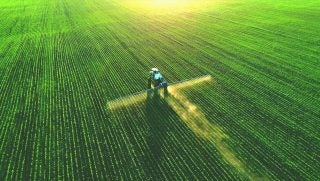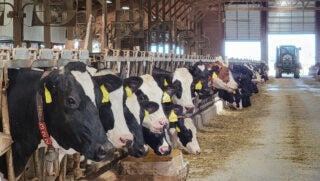U.S. Department of Agriculture Secretary Tom Vilsack and White House Domestic Policy Advisor Susan Rice announced a new whole-of-government effort led by the USDA to transform the way federal agencies partner with rural places to create economic opportunity in rural America. The USDA-led Rural Partners Network is an all-of-government program that will help rural communities access government resources and funding to create jobs, build infrastructure and support long-term economic stability.
Vilsack said, “Rural America is incredibly diverse — economically, racially, culturally and geographically. What makes sense for one community may not for another. The Rural Partners Network will help communities get funding for investments that create long-lasting benefits for their communities, especially those that have been overlooked in the past. By providing one-on-one support to these communities, we can lay the foundation for people to build healthy, successful futures on their own terms.”
Rural Partners Network
The Rural Partners Network is a first-of-its-kind collaboration between federal agencies and local leaders and residents. This Network is focused on improving social and economic well-being bolstered by existing local partnerships and assets. This program will launch in selected communities in Georgia, Kentucky, Mississippi, New Mexico as well as certain Tribes within Arizona. Community networks within these states will receive individualized support with the expertise to navigate federal programs, build relationships and identify additional resources to promote community-driven solutions.
The USDA has selected the following community networks for the Rural Partners Network:
- In Georgia: Emanuel County and City of Twin City Community Network; Ben Hill County and City of Fitzgerald Community Network; and Southwest Georgia Regional Commission Community Network including the counties of Baker, Calhoun, Colquitt, Decatur, Dougherty, Early, Grady, Lee, Seminole, Miller, Mitchell, Terrell, Thomas and Worth.
- In Kentucky: Kentucky Highlands Community Network including the counties of Bell, Clay, Harlan, Knox, Leslie, Letcher, Perry and Whitley; and Fulton County and cities of Fulton, Hickman and Cayce Community Network.
- In Mississippi: Washington County Economic Alliance Community Network including the counties of Bolivar, Leflore, Sunflower and Washington; Greater Grenada, Lake District Partnership Community Network including the counties of Grenada and Yalobusha; and North Delta Planning and Development District Community Network including the counties of Coahoma, Quitman and Tunica.
- In New Mexico: Southwest New Mexico Council of Government Community Network including the counties of Catron, Grant, Hidalgo, and Luna; Northern New Mexico Pathways Economic Development District Community Network including the counties of Mora, San Miguel, Colfax and Taos; and Mesilla Valley Community Network including the county of Doña Ana.
- In Arizona: San Carlos Apache Tribe, Tohono O’odham Nation and Cocopah Indian Tribe.
Each community network will be supported by a Rural Partners Network team to help address that community’s specific needs and concerns, building on local assets. Network staff will also be responsible for sharing lessons learned from selected communities with federal agencies in D.C. to ensure rural communities have a voice in policymaking. Policy development will occur through regular convenings of the Rural Prosperity Interagency Policy Council, co-led by USDA and the Domestic Policy Council. There are 16 federal agencies and regional commissions participating in the Council.
The Rural Partners Network will expand to additional places later in fiscal year 2022. Those states, Tribes and territories include Nevada, North Carolina, Puerto Rico, West Virginia, Wisconsin, and Native Alaskan communities. More information can be viewed online.
“The federal government must work better for rural communities so that they can fully take advantage of these opportunities. The Rural Partners Network will empower rural communities to get their fair share of federal funds, an important goal for not only economic development but equity as well,” Rice said.


